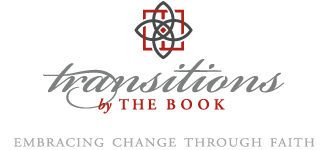As you may recall, several weeks ago, I was the guest pastor at a small church in Tipton, IN and delivered a sermon on two of the Psalms that are my favorites. After my message was over, and the service had ended, several members of the congregation came up and discussed one of the statements that I had made during my sermon. Specifically, it had to do with the comment that I made about the nature of the Psalms.
One of the things that we are taught in seminary is that the Psalms were sung by the Israelites while they were in exile after being defeated in their homeland and removed to another country. Since many of the people had memorized the Psalms, they were put to music and singing the poetry reminded the people of their heritage. Since there were no papers or books, the songs were a very timely reminder of the history of the Jewish nation. Of course, some of the psalms were for praise and worship, some were lamentations and cries to the Lord, others were prayers of thanksgiving and still others spoke of God’s love, mercy, kindness, compassion or other traits that are attributable to Him.
One of the more obscure facts about the 150 Psalms is that they are divided into 5 separate “books” or sections within the complete body of the work. Specifically, Psalms 1-41 primarily speak of humans as blessed, fallen and then redeemed by God – like the story of God’s people that we read about in Genesis. Book 2, from Psalms 42-72, symbolic of Exodus, speaks about man’s ruin and rescue. Book 3, from Psalms 73-89, symbolic of Leviticus, speaks of God’s holiness, the temple and the enthronement of God. Then on to Psalms 90-106 that comprise Book 4, associated with the book of Numbers; mainly about the relationship of Israel to other nations and kingdoms. Finally, the balance of the Psalms, from 107-160, are anthems of praise and thanksgiving to God and are reminiscent of the book of Deuteronomy.
In other words, the people of Israel could sing the Psalms and be reminded of the first 5 books of the Bible, the Torah, written by Moses and detailing the story of God’s people from the beginning of Man in the Garden of Eden to the death of Moses and the entrance into the Promised Land. This constant reminder of their history was instrumental in getting them through the exile until they were able to return to their homeland and once again begin the unfettered worship of their God.
We would do well to have similar reminders of the awesome nature of God. Of course, we have the entire Bible and it would be to our benefit if we read it every day, much like the constant singing of the Psalms during the years of the exile. But few of us are disciplined enough to have daily devotionals and even I confess that writing this post each day is instrumental in keeping me connected with the Father. The verse for tonight is the last verse of the last Psalm – number 150, verse 6. It reads, “Let everything that has breath praise the LORD. Praise the LORD.” What great advice, to conclude the last book of the Psalms with encouragement to praise and worship God.
My encouragement for you tonight is the same – that you will praise and worship God. My prayer is that He will abide, or remain, in you and that you will dwell in the house of the Lord forever. Have a great day in the Lord, grace and peace…
